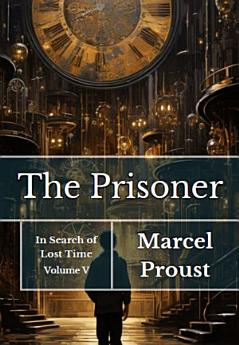The Prisoner
About this ebook
La Prisonnière reached bookshops in Paris at the end of November 1923, shaped from the stack of notebooks Proust left on his nightstand and guided into print by his brother Robert with editor Jacques Rivière. The novel moves the grand social panorama of the earlier volumes into a single apartment near the Luxembourg Gardens, where the narrator keeps the vivacious Albertine under almost constant watch, fearful of her friendships and haunted by rumours of her Sapphic past. By shrinking the stage from country houses and seaside hotels to a locked Paris suite, Proust shows how love can harden into surveillance at a time when Europe, still recovering from war, was already uneasy about the shifting borders between freedom and control.
Yet the book exposes a weak spot in modernist relativism, the habit of treating every motive as a matter of passing mood rather than moral truth. Proust’s winding sentences let the narrator remake coercion as tenderness, turning the locking of a door into lyrical gesture and allowing beauty to blur responsibility; the result warns that art devoted to feeling alone can grant grace to cruelty. The pages remain magnetic because they pair meticulous observation with this disquiet, inviting readers to savour the taste of memory while keeping an eye on the danger that memory, treasured above principle, may leave conscience without a compass.
This critical reader’s edition presents a modern translation of the original manuscript, crafted for the contemporary reader with lucid language and streamlined sentences that illuminate Proust’s intricate French syntax and period‑specific allusions. Supplementary material enriches the text with autobiographical, historical, and linguistic context, including an afterword by the translator on Proust’s personal history, cultural impact, and intellectual legacy, an index of the philosophical concepts he weaves—highlighting his explorations of memory, time, and the influence of Henri Bergson—a comprehensive chronological list of his published writings, and a detailed timeline of his life, emphasizing the friendships and social circles that shaped his artistic vision.







